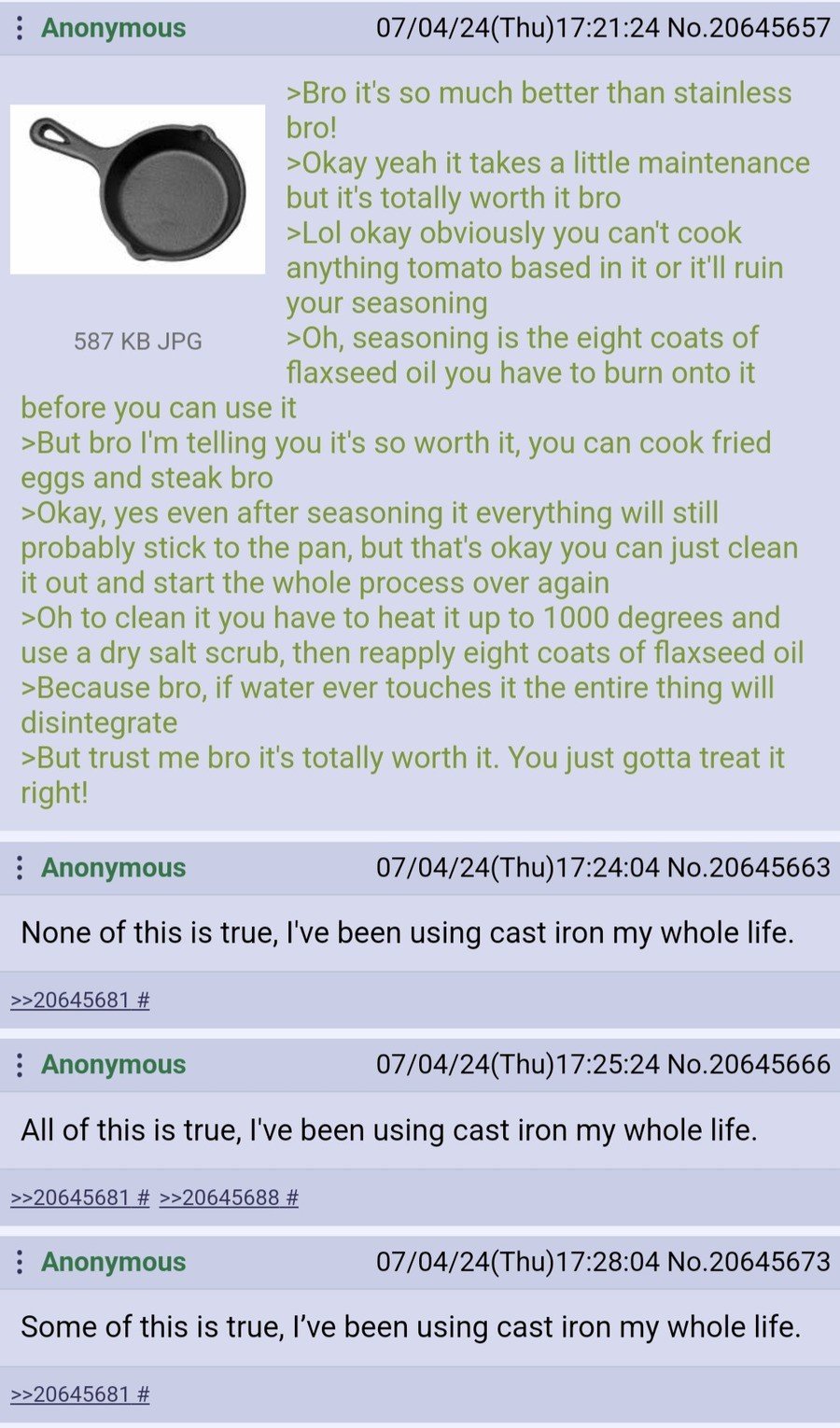this post was submitted on 02 Oct 2024
1076 points (99.4% liked)
Greentext
6211 readers
266 users here now
This is a place to share greentexts and witness the confounding life of Anon. If you're new to the Greentext community, think of it as a sort of zoo with Anon as the main attraction.
Be warned:
- Anon is often crazy.
- Anon is often depressed.
- Anon frequently shares thoughts that are immature, offensive, or incomprehensible.
If you find yourself getting angry (or god forbid, agreeing) with something Anon has said, you might be doing it wrong.
founded 2 years ago
MODERATORS
you are viewing a single comment's thread
view the rest of the comments
view the rest of the comments

No, the main benefit is that it is made out of something edible that won't give you cancer
Stainless steel is unreactive and is leeching less into your food than cast iron, if that's your main concern. We already know that burned things are a carcinogen so why wouldn't that include burned polymerized vegetable oil?
I think they mean Teflon coating. While Teflon itself is not carcinogenic, the chemicals used in its production are in the PFAS group and not so healthy. The question is then if those chemicals are sufficiently removed in the end.
Iron is literally a nutrient.
The dose makes the medicine though, as usual.
Can you find a source that provides any scale for how much over the recommended daily 8-28mg (men vs. women) is required to cause long-term concerns? All I can find online is for acute iron poisoning which is usually when a kid wolfs down a bottle of supplements.
If you're curious, Wikipedia says iron poisoning happens at around 20-60mg/kg or 1.8-5.4g for a 90kg (200 pound) person. That's like 3/4 of an M&M's worth of pure easily digestible iron which is a shitload.
I've never heard anyone talk about any negative health impact of cooking with iron (which people have been doing for literally thousands of years), so I'm curious.